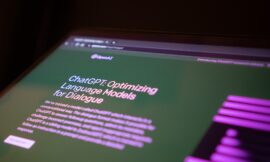When OpenAI announced ChatGPT, it was soon seen how this conversational AI model could pose a threat to the traditional Google search engine. The company even declared a “code red” for finding solutions, and months later launched its own chatbot, called the Google Bard. Now the search giant wants to go further with an ambitious new plan. One with a major problem.
Project Magi . This is the name of the new Google initiative that involves more than 160 company employees and whose objective is to revolutionize its search engine and propose a much more ambitious alternative to ChatGPT. This has been indicated by sources close to the project in The New York Times, where they reveal how the movement is given by an increasingly worrying threat: that those who used the Google search engine on their devices stop doing so.
Samsung threatens to move to Bing. A few weeks ago, Google employees learned that the South Korean electronics giant was considering replacing Google with Bing as the default search engine on its devices. That would mean not having some 3,000 million in annual income that comes through this agreement, similar to the one that, for example, Google maintains with Apple —although much more important, 20,000 million is estimated—, and which is even more relevant in his book of accounting. According to internal messages to which the NYT had access, in Google the reaction to such a possibility was “panic”.
AI in the search engine (and in more places). The goal with Project Magi is to integrate artificial intelligence models into the search experience to achieve more personalized features that try to anticipate user needs. Lara Levin, a spokesperson at Google, explained that “Not every brainstorming session or product idea leads to a launch, but as we’ve said before, we’re excited about the addition of new AI-powered search features, and will soon more details about it.”
A search engine that learns from how you use it . Among the improvements would be the continuous learning of the search engine based on our use of it. For example, it could offer lists of pre-selected options for products to buy, or also information that we might be looking for, always with the intention of anticipating what we are going to ask for. The search engine would be more conversational, although it is not clear if there will be a traditional search and then the option to chat, as Bing now offers with ChatGPT.
He also makes his own Midjourney. Another of the products that can be part of this set of tools with AI would be GIFI, an image-generating AI that would be integrated into the Google image search engine. There would be other options, such as the integration of these functions in Google Earth or in a potential tool called Tivoli Tutor to teach to speak a language using AI-generated conversations.
Release (very) cautious. According to data from the NYT, the company expects to offer the tools of Project Magi next month – probably taking advantage of Google I / O? – and add more features in the fall. Initial rollout will be slow, with only a million people expected to have access to those options. Before the year Project Magi is planned to be available to 30 million users, but exclusively in the United States.
And meanwhile, ChatGPT and Bing continue their conquest. That’s precisely the problem. Google Bard has been available in the United States for a few weeks now, although as we have already seen, it can be used with a VPN from outside that country. Even so, Google continues to walk on lead feet and its launches are being especially timid, something understandable considering that a disruption of this dimension threatens its advertising business . But all that caution with Bard and with Project Magi works against them, especially since Microsoft does not stop offering more and more services and solutions based on ChatGPT, and OpenAI has not stepped on the brakes either, despite the fact that some have asked it to do so.

